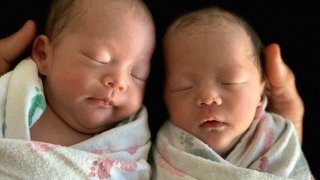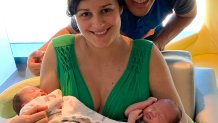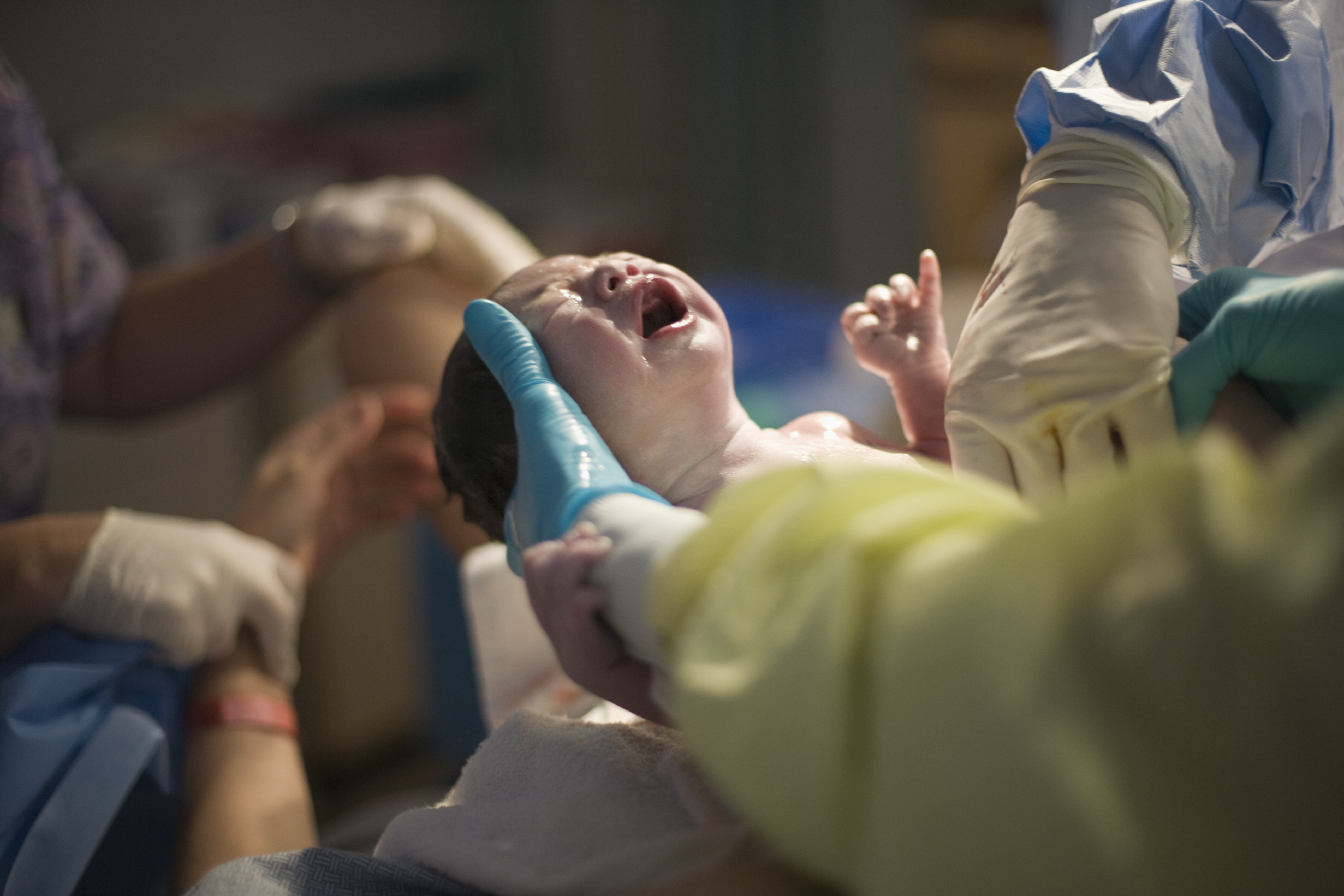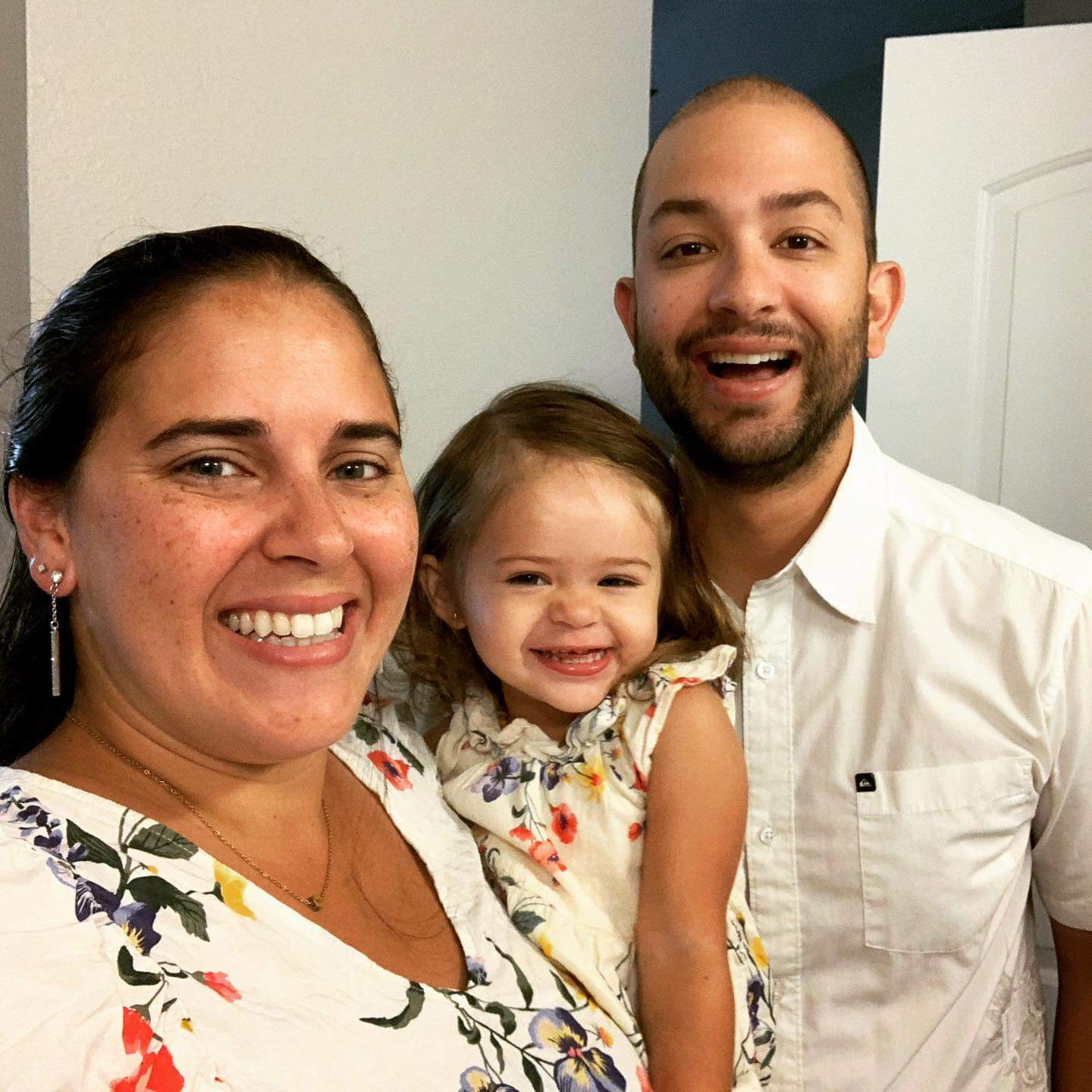
A local couple is sharing their experience of undergoing a high-risk pregnancy that resulted in the birth of their healthy twin daughters amid the coronavirus pandemic.
Corina Antal and Gene Yeo were ecstatic to learn they were expecting twin girls, but that excitement soon turned to concern upon learning their babies tested as Monoamniotic (MoMo). The rare condition means the fetuses shared one placenta and amniotic sac, which made for a high-risk pregnancy, according to UC San Diego Health.
The couple did everything they could to learn more about the condition. Antal is a postdoctoral fellow at the Salk Institute for Biological Studies while Yeo is a professor in the Department of Cellular and Molecular Medicine at the UC San Diego School of Medicine.
Pregnancy During COVID-19
Stories about pregnancy amid the pandemic.
“As scientists, we were not only reading all the studies we could find on MoMo twins, but also COVID-19,” Yeo said in a statement.
Because MoMo poses the threat of umbilical cord entanglement and compression, the first-time mother was constantly monitored for her babies’ health. Antal received ultrasounds every two weeks and was hospitalized before her delivery for further monitoring.
Antal was admitted to Jacobs Medical Center at 30 weeks during early March, around the same time COVID-19 began to escalate in the U.S. At that time, public health orders like social distancing and the recommendation of facial coverings were not yet in effect.

-UC San Diego Health
“I was anxious at first about being in the hospital,” the new mother said in a statement. “I had been sanitizing everything at home, but now I was going into an environment that I didn’t have as much control over.”
Over time, Antal’s worries decreased because nurses, doctors and custodians in the hospital kept masks on and kept facilities sanitized, lowering any risk of exposure to the virus.
At 32 weeks, the couple welcomed babies Emilleen and Emabelle, who were born via Caesarean section. Although the newborns did not experience any complications at birth, they spent five weeks in the NICU because they were born prematurely and as a result of a high-risk pregnancy.
Now, the girls are well and finally at home.
“We are so grateful for our healthy daughters and the incredible care we received throughout our pregnancy and while we were in the hospital,” Antal said. “We are now enjoying every moment with them at home as a family.”
Researchers are conducting studies to see how COVID-19 affects pregnancy and if it does at all. One recent study from Northwestern University suggests the virus injures the placenta in infected pregnant women. More studies are being done to see how newborns, mothers and pregnancy are impacted during the pandemic.



